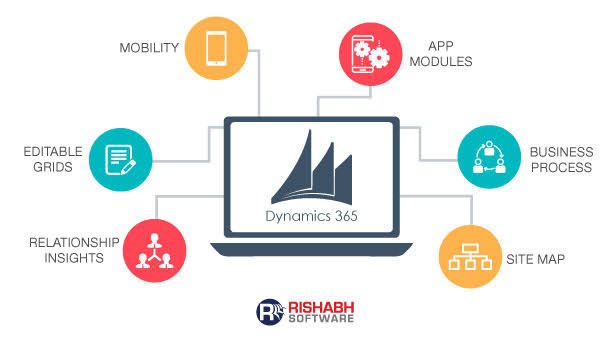Biggest HubSpot Onboarding Challenges and How to Overcome Them
Introduction:
HubSpot’s powerful suite of tools has revolutionized the way businesses approach inbound marketing and customer relationship management (CRM). While the benefits of using HubSpot are undeniable, the onboarding process can present unique challenges for businesses. In this article, we will delve into the biggest HubSpot onboarding challenges and provide actionable strategies on how to overcome them, ensuring a smooth and successful transition to the platform with the help of expert partners like a Hubspot Marketing Agency.
Navigating Complexity:
Challenge: HubSpot offers a wide array of tools and functionalities, which can be overwhelming for new users during onboarding.
Solution: To overcome this challenge, businesses should prioritize comprehensive training for their teams, providing hands-on experience and guidance. Leveraging HubSpot’s extensive knowledge base and seeking expert assistance from certified Hubspot CMS Consultants can also simplify the onboarding process.
Data Migration:
Challenge: Migrating data from legacy systems to HubSpot can be a complex task, and any errors can lead to data discrepancies and hinder marketing efforts.
Solution: Conducting thorough data audits prior to migration and ensuring data hygiene are essential steps. Collaborating with experienced data migration specialists or Hubspot Marketing Agencies can streamline the process, ensuring a seamless transition of data.
Aligning Sales and Marketing:
Challenge: Misalignment between sales and marketing teams can hinder lead management and negatively impact customer interactions.
Solution: Promoting open communication and conducting joint training sessions for both teams fosters collaboration and ensures a shared understanding of HubSpot’s capabilities. Establishing common goals and metrics encourages a unified approach towards business growth with the support of a Hubspot Marketing Agency.
Content Strategy and Implementation:
Challenge: Creating a cohesive content strategy and effectively implementing it within HubSpot can be challenging for businesses during onboarding.
Solution: Conducting thorough research to understand the target audience and utilizing keyword analysis tools can help refine the content strategy. Working with content experts and leveraging HubSpot’s content optimization features can maximize the impact of content efforts with guidance from Hubspot CMS Consultants.
Integrating Third-Party Tools:
Challenge: Many businesses rely on third-party tools for specific functions, making seamless integration with HubSpot essential for efficient operations.
Solution: Collaborating with experienced HubSpot developers and consultants can ensure smooth integration using APIs and automation, reducing manual efforts and ensuring data synchronization across platforms.
Defining Lead Scoring Criteria:
Challenge: Establishing the right lead scoring criteria is critical for prioritizing leads and maximizing sales efforts.
Solution: Engaging sales and marketing teams in a collaborative effort to define lead scoring parameters ensures alignment and an accurate evaluation of lead quality. Regularly reviewing and refining the lead scoring model based on performance data optimizes lead management.
Analyzing and Interpreting Data:
Challenge: Interpreting the vast array of data and analytics provided by HubSpot can be daunting for businesses.
Solution: Providing training for team members on interpreting HubSpot’s analytics enables data-driven decision-making. Engaging with experienced HubSpot consultants can offer valuable insights and guidance on deriving actionable insights from data.
Optimizing Workflow Automation:
Challenge: Leveraging HubSpot’s automation capabilities to streamline workflows and processes can be a complex task.
Solution: Identifying repetitive tasks and bottlenecks in processes allows businesses to design efficient automation workflows. Collaborating with automation experts or a Hubspot Marketing Agency can help set up workflows that enhance productivity and eliminate manual tasks.
Personalization at Scale:
Challenge: Providing personalized experiences to a large audience can be challenging, even with HubSpot’s personalization tools.
Solution: Utilizing dynamic content and smart content features within HubSpot enables businesses to tailor messaging based on user behavior. Implementing segmentation strategies and seeking guidance from HubSpot consultants ensures effective personalization strategies that resonate with different segments.
Continuous Learning and Updates:
Challenge: HubSpot regularly updates its features and tools, requiring users to stay updated to make the most of the platform.
Solution: Encouraging a culture of continuous learning within the organization keeps teams informed about new updates and best practices. Subscribing to HubSpot’s official blogs, attending webinars, and working with HubSpot experts helps businesses stay ahead of the curve.
Managing Change Effectively:
Challenge: Implementing HubSpot involves a change in processes and workflows, which can meet resistance from employees.
Solution: Communicating the benefits of HubSpot and involving employees in the decision-making process can increase buy-in. Providing training and support, and addressing concerns, helps employees adapt to the change more smoothly.
Conclusion:
Conquering the biggest HubSpot onboarding challenges is essential for businesses seeking to harness the platform’s full potential. By prioritizing comprehensive training, collaborating with experienced consultants, developers, and a Hubspot Marketing Agency, and fostering alignment between teams, businesses can ensure a successful onboarding process. Implementing these strategies will empower businesses to leverage HubSpot’s capabilities effectively, driving growth, and fostering long-term success.







